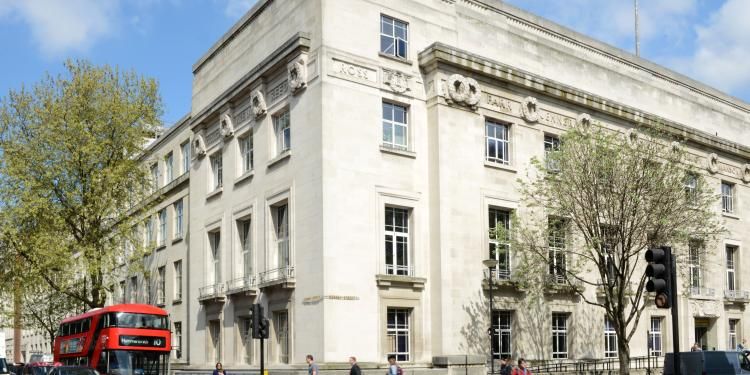Scheme:
Phase 1 Public Sector Decarbonisation Scheme
Technologies used:
Solar PV, Energy efficient freezers, Insulation
Region:
London
Client type:
Higher education institution
Your partner for a low carbon future

Phase 1 Public Sector Decarbonisation Scheme
Solar PV, Energy efficient freezers, Insulation
London
Higher education institution
Annual savings
Total grant value
Annual carbon savings tCO2e*
LSHTM has received a £1.2m grant from the Public Sector Decarbonisation Scheme to improve its estate, enhance the use of space across campus and build longer-term resilience throughout its buildings.
As part of the organisation’s drive to accelerate the transition away from fossil fuels to alternative energy solutions, the efficiency upgrades will contribute to LSHTM’s long-term Energy and Carbon Management Plan which the institution has pledged to reach net zero by 2030.
Part of the upgrades will include the institution's Grade II listed main building, which is almost 100 years old, updating the ageing infrastructure to meet modern environmental standards.
Once complete, LSHTM will benefit from an estimated 300,000kWh saving a year on its energy bill, the equivalent to the annual electricity consumption of around 80 homes in the UK.
LSHTM is currently embarking on its largest ever sustainability drive and we’ve pledged to reach net zero carbon emissions by 2030. This generous grant will accelerate our plans, allowing us to invest in energy-efficient infrastructure.
The University will focus on low carbon heating, increased building energy efficiency, using low carbon electricity and reducing electricity demand to help towards achieving its net zero emissions target by 2030.
Their strategy will consist of the following:
May 2021
*tonnes of Carbon Dioxide, calculated using Green Book emissions factors for electricity published by the government.
